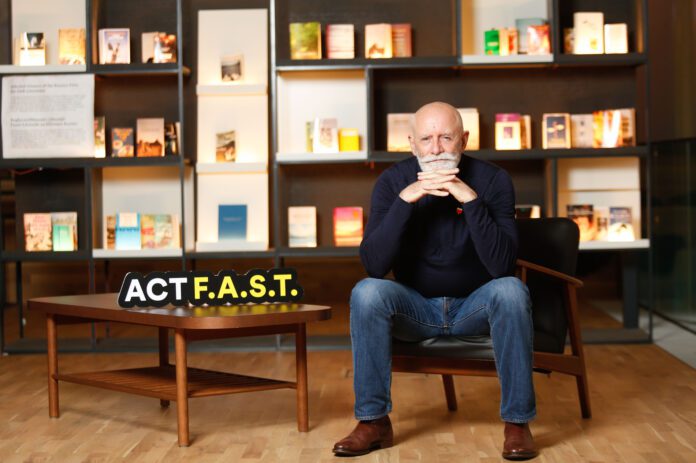
THE Irish Heart Foundation is urging Limerick people to know the signs of stroke and to be aware of the vital action to take in the event of witnessing one.
Research conducted nationally has found that only one in five people know the most important steps to take in the event of a stroke – with 43 per cent unaware of any of the four key signs, new research shows.
And experts warn that the worrying figure of 41 per cent of patients failing to get to hospital within 4.5 hours to receive thrombolysis (clot-busting treatment), could be much higher.
There were 79 stroke or stroke-related deaths in Limerick in 2020 – 35 men and 44 women – according to Central Statistics Office data. The Irish Heart Foundation voiced concern at the “shockingly low” awareness of stroke as a medical emergency as it launched a new Act F.A.S.T. campaign nationwide.
An Ipsos MRBI poll for the charity reveals that just 20 per cent know the T stands for the importance of time to call 112 or 999. “A high proportion of death, severe disability and misery for families caused by stroke in Ireland, could be avoided just by knowing what those four letters mean,” said Chris Macey, the Foundation’s Head of Advocacy.
“Facial weakness (can the person smile and has their mouth or eye drooped?), Arm weakness (can the person raise both arms?), Speech problems (can the person speak clearly and understand you?) and Time (call for an ambulance if you spot any one of these). “Stroke is one of the few conditions where your own actions will determine your outcome. Treatment has improved dramatically but doctors still rely on people getting to hospital as soon as possible after experiencing symptoms to give them the best possible chance of recovery. “The average stroke destroys two million brain cells every minute – and it’s estimated that every 60 seconds saved between having a stroke to getting effective treatment, saves one week of healthy life for a patient.
“Unfortunately, the survey, conducted earlier this month, found that 43 per cent do not know any of the F.A.S.T. signs and just 10 per cent know them all, even though they are among the most vital signs.”
Broadcaster Mark Cagney, who suffered a stroke in January, is backing the campaign to raise awareness of the key time factor. “It’s like having a first aid box at home – it’s just one of those things that you should know because a stroke could happen to anyone,” said the former Ireland AM host, who has returned to work on Newstalk radio.
The father-of-four said he had to choose whether to “go on or go under” and is urging the public to become as familiar with F.A.S.T. as they are with the alphabet or counting.
He collapsed in his local supermarket in North Dublin and soon afterwards, returned home and collapsed again, at which point he was advised to go to Dublin’s Beaumont Hospital.
Tests confirmed he had had an acute ischaemic stroke and a clot on his lung.
“This can happen to anyone and everyone. It doesn’t matter if you are Superman or Superwoman. If a vessel pops or it clogs, it will drop you, so if you don’t know the signs then you’re in even bigger trouble than you were to start with,” said Mr Cagney, 65.
He said he felt incredibly lucky to escape relatively unscathed from his stroke, despite losing some of his vision, being unable to drive and having ongoing difficulties with spatial awareness.
Meanwhile, Mr Macey called for the urgent publication of the HSE’s long overdue National Stroke Strategy, which includes provision for a fully funded rolling annual F.A.S.T. campaign that will improve the recovery rate and reduce the cost of treating severe stroke.
An estimated 7,500 people in Ireland are hospitalised due to stroke each year, with younger age strokes becoming more prevalent, an average of 1 in 4 strokes affecting those under 65.
Visit irishheart.ie for more information on stroke.









